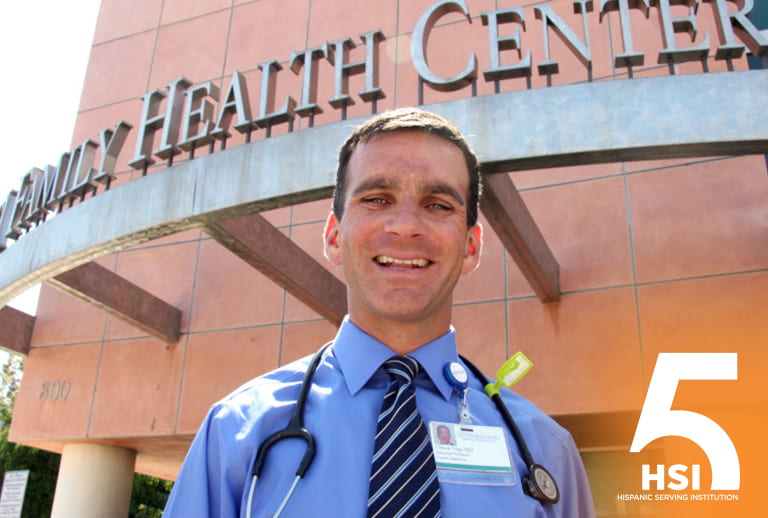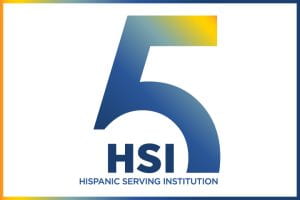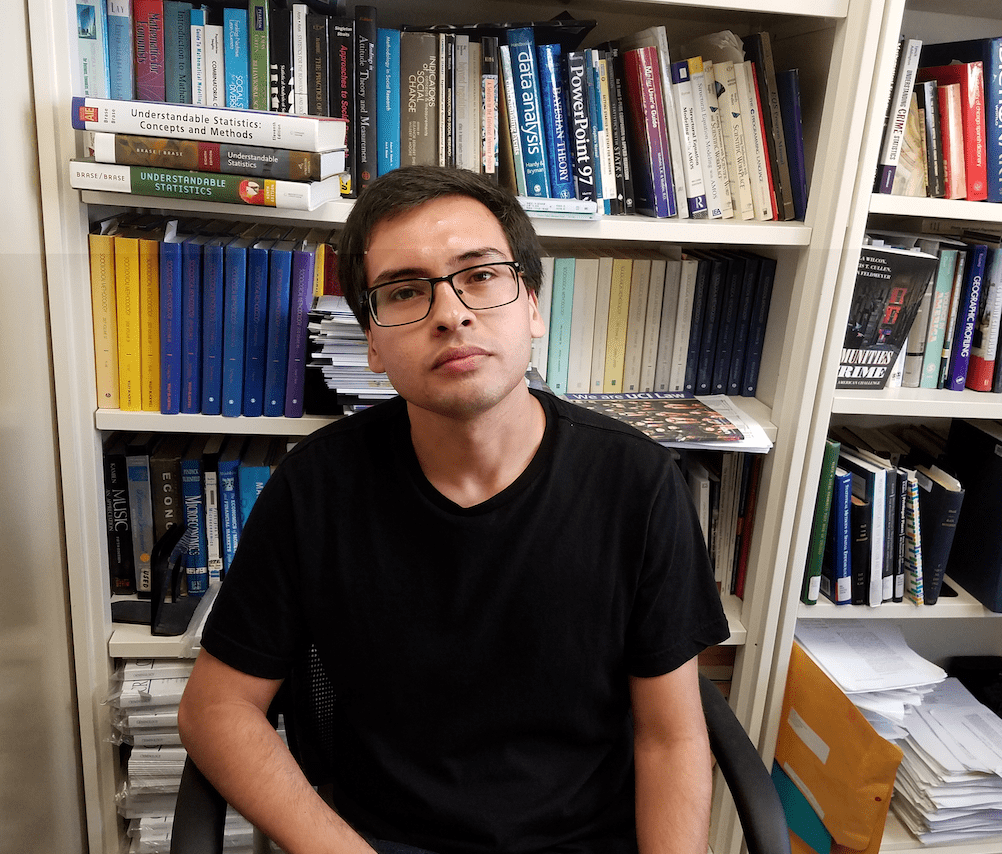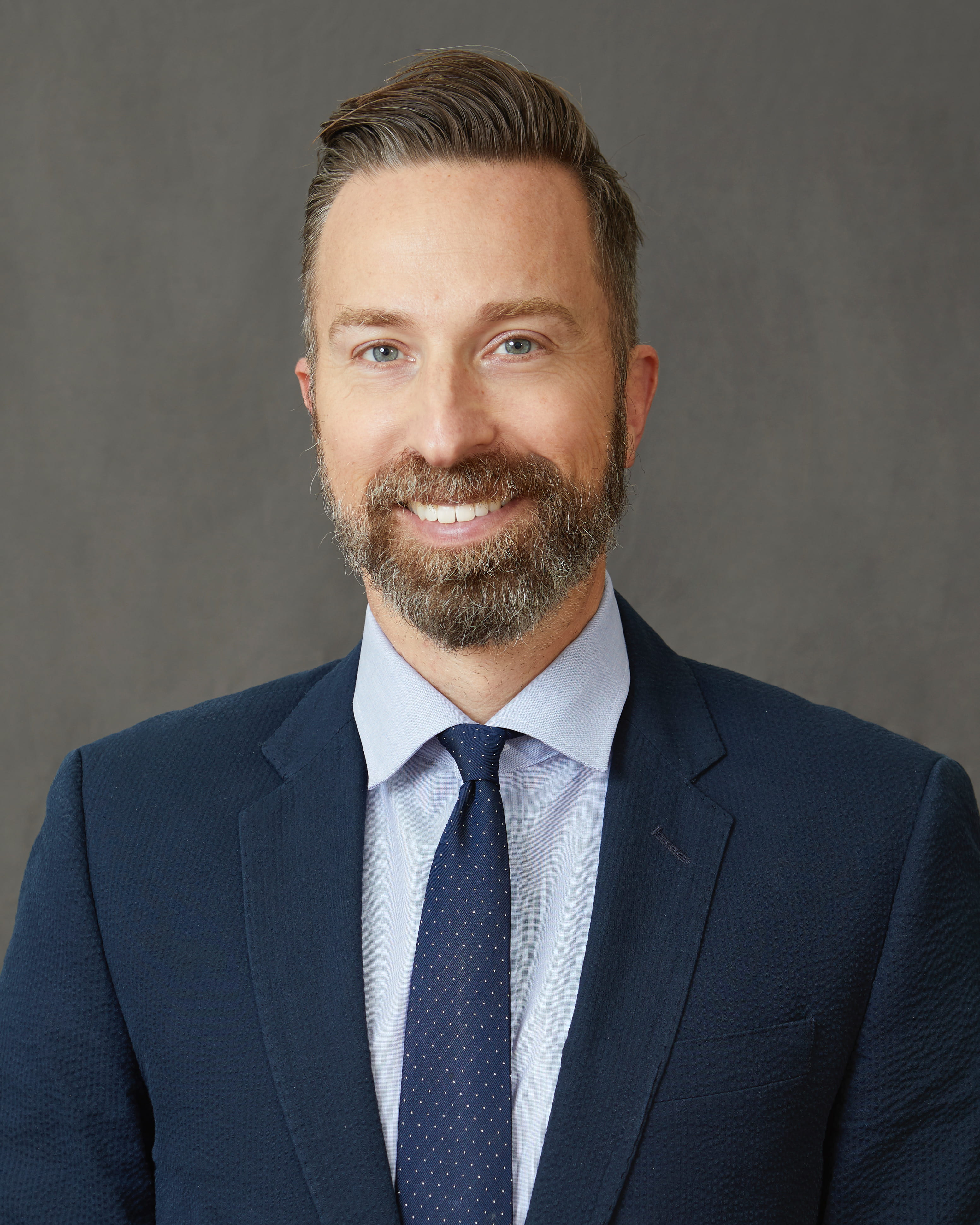UCI Podcast: The success of PRIME-LC
The medical training program for the Latino healthcare has been influential for UCI’s Hispanic-Serving Institution status

Five years ago, UCI was designated as a Hispanic-Serving Institution by the US Department of Education, and to this day, the campus remains one of the few major research universities to have gained this status. There are lots of great stories that highlight UCI’s commitment to creating an environment where Latino student thrive. But with this edition of the UCI Podcast, we’re looking back at one of the original programs that has influenced all campus efforts to attain and maintain this Hispanic-Serving Institution status – PRIME-LC.

The Program in Medical Education for the Latino Community just enrolled its 19th class. The tight-knit PRIME-LC family is placing its stamp on healthcare for Latinos in Southern California, and the program has been wildly influential with the creation of PRIME programs at other UC medical schools. These programs address health equity issues facing a wide range of traditionally underserved populations. And it led to the creation of the LEAD–ABC program in the UCI School of Medicine to enhance diverse healthcare leadership for the African, Black and Caribbean communities.
PRIME-LC director Dr. Charles Vega and PRIME-LC graduate Dr. Michelle Crespo join Tom Vasich to talk about the program’s vast influence on improving healthcare to the Latino community.
To get the latest episodes of the UCI Podcast delivered automatically, subscribe at:
Apple Podcasts – Google Podcasts – Stitcher – Spotify
TRANSCRIPT
Transcript
Five years ago, UCI was designated as a Hispanic-Serving Institution by the US Department of Education. And to this day, the campus remains one of the few major research universities to have gained this status. There are a lot of great stories that highlight UCI’s commitment to creating an environment where Latino students thrive. But with this addition of the UCI podcast, we’re looking back at one of the original programs that has influenced all campus efforts to attain and maintain this Hispanic serving institution status PRIME-LC.
I’m Tom Vasich, and I’ve written about and pitched media stories about PRIME-LC since its very beginnings. And I’ve gotten to know many of its graduates who remain some of the most inspiring people I’ve ever met.
The Program in Medical Education for the Latino Community was first conceived by Dr. Alberto Manetta, an emeritus professor of obstetrics & gynecology and the former associate dean of medical education in the UCI School of Medicine. Current UC president Michael Drake, who then was the UC vice president of health affairs, also helped with the program’s creation. PRIME-LC enrolled its first class of 10 in 2005. And right now there are nearly 150 PRIME-LC train doctors making a difference in the community.
Manetta’s idea was revolutionary at the time, create a curriculum in which Spanish-speaking medical students focus on the distinctive health issues facing Latinos from underserved communities, have these students train with Latino patients in a clinic serving that community, and then let them pursue a supplemental master’s degree in a subject like public health or business.
Little did Dr. Manetta know how important the program would become.
As they say on Broadway, PRIME-LC was a hit, and it continues its long run with its 19th class this academic year. It’s also expanded to include a residency program in family medicine.
The tight knit PRIME-LC family is placing its stamp on healthcare for Latinos in Southern California. And the program has been wildly influential with the creation of PRIME programs at other UC medical schools. These programs address health equity issues facing a wide range of traditionally underserved populations. And it led to the creation of the LEAD-ABC program in the UCI School of Medicine to enhance diverse healthcare leadership for the African, Black and Caribbean communities.
PRIME-LC is directed by Dr. Charles Vega, who is a clinical professor of family medicine. I spoke with him recently about the great achievements and influence of his program.
What did you first think when Dr. Manetta shared his ideas on PRIME-LC with you?
It was a real revelation, because I happened to be working along similar lines in our residency program in Santa Ana, to really embrace the community of Santa Ana, which is one of the largest per capita Spanish speaking cities in the country. And it was really inspirational to hear that he was doing something similar, but at the at the undergraduate medical education level with the medical students and, and much more broadly, you know, in involving a, you know, a big, bold new program. So I wanted to get in on it ASAP and learn as much as I could and then try to leverage some of what we were doing to synergize with what Dr. Manetta was planning, because it really was a revolutionary idea.
Well, how does PRIME-LC differ from a regular medical school curriculum?
Well, the foundation of PRIME-LC has to be a good general medical education. You can’t be a great leader or advocate if you’re not a good physician in the first place. So the, our students take the same basic science courses. They take the same clinical science courses that any other medical student takes, but they also do additional work beyond that regular medical school education to promote their leadership, to promote themselves as advocates for Latino communities. And so that the backbone of that is really performed by our Chicano/Latino Studies department. They have a three-year course series that actually begins about two months before they begin medical school, where they start with their first course in Chicano/Latino Studies in a pre-entry curriculum, and then that course continues all the way through their third year of medical school.
Another major facet of PRIME-LC is that all of our students are required to get a master’s degree of their choosing that’s pertinent to Latino health, and just about everything affects health. So, we have seen a variety of different degrees, but the most common ones are a master’s in public health or a master’s of business administration. So that those things really help forward our students, and it creates a longer program. It’s definitely more than what other medical students do, but it really accelerates them in terms of the leadership and advocacy.
I’ve met pretty much all of the incoming, PRIME-LC students over the years. And one thing that distinguishes them in my opinion is that they’re very driven to be advocates. They want to be great doctors, but they want to advocate. Is that something you look for when you’re, when you’re reviewing applicants for the PRIME-LC program?
Absolutely. And, and there’s a lot of different ways to be a leader. There’s a lot of different ways to advocate. We have all kinds of students, in terms of their goals and also their personalities in the program, but it is, it is a shared ambition to improve the health and wellbeing of Latino communities. So we do look for that. You know, we’re really what we’re looking for when we’re interviewing for PRIME-LC is someone who wants to be there in the community for a protracted amount of time where they can really make an impact, not just a three-year service commitment. This is the reason they’re going into medicine is to promote Latino health.
This is the 19th class of PRIME-LC students that started last month. How have you seen the students change over the years?
You know, I think that one thing that’s always stayed the same is that level of commitment. Most of our students are disadvantaged themselves. They know health disparities from the inside out. I think one thing that’s that certainly has changed is how they could advocate and the kinds of opportunities they have, because now, you don’t have to fly to national conferences anymore to have an impact. You can use social media, and you could do less formal means of leadership, outreach and advocacy that can make a huge difference and impact. So we’re seeing students who come in with that skillset and who use that even while they’re busy in medical school. And so that has been a difference, and I think it’s a needed difference in the community.
One of the jewels of the PRIME-LC experience is the UCI Health Family Health Center in downtown Santa Ana, which is a wonderful community health center. How has that helped PRIME-LC students learn about serving the Latino community?
And it’s a good time to talk about Family Health Center, because it’s my clinical home. So I’m never shy about talking about it. It won some awards nationally for promoting health equity in Santa Ana. So, yeah, things are going very well there, we’re always busy, and we’re doing a lot of good work with our team there. The students get exposed to that. They get exposed, not just to a challenging cases with strong clinical care, but also that feeling of being there to make a difference and having a long-standing presence in a community that desperately needs good healthcare and better health overall. They’re part of that mission, and they’re actively involved in it by rotating through the clinic as one of their main ambulatory sites on clinical rotations.
The PRIME-LC program has been incredibly influential in the evolution of medical education in the entire UC system. There are now PRIME programs at all of the medical schools in the UC system. They’re pretty much based on the efforts you and Dr. Manetta, and even Dr. Drake, helped develop. Did you think over the years that this program would be so influential on medical education for diverse groups in California?
We’re really proud of the collaborative work and the overall accomplishments of PRIME across the state. And that was recognized a couple years ago by a state taskforce, looking at health disparities, recognize PRIME as one of the key ways we can reduce health disparities overall in the state of California, because we are training this next generation of ambitious and highly empathic and motivated individuals. And if you take a look about 12 students from each campus, you know, that’s 60 students who are becoming doctors every year, and over time, that really starts to make a difference, I think, in health disparities, to say nothing of their influence on their colleagues. I can certainly say that on this campus, and I’m sure it’s true of others, that there’s an increased drive towards social justice as a result of PRIME being there and being leaders on these campuses. So I think that that overall, the future for PRIME is very bright. We are committed in California, where we do see a lot of disparities, but of course we’re not the only state where we see those. We have promoted PRIME more nationally, and it’d be interesting to see if other states adopt a similar model.
Another area of influence for PRIME-LC is also here on campus. Over the past 10 years, the university has worked to attain Hispanic-Serving Institution status. And my feeling is that the example of PRIME has really helped lead this effort. Is that something you’ve seen?
I hope so. I think that UCI being a Hispanic-Serving Institution is a remarkable achievement. And it’s great for us, because we really do believe our own model here has led many programs in terms of youth mentorship and and coaching in communities like Santa Ana and central Orange County. We have the hope that these students one day attend UCI as an undergrad, and that a certain percentage of them will go into medical school with us here in PRIME-LC. So that fits very well with our model, and the more we have collaboration and a linkage from all the way down to elementary school through our post baccalaureate programs into medical school and beyond, because we do have some programs to support underrepresented residents and fellows, for example, that’s really critical to continue to evolve our workforce to a more cultural responsive model and one that has a stronger mission towards equity in healthcare.
Finally, I like to ask you, because you’ve been with this program pretty much since the be since the beginning, what are you most proud about?
I’m really proud when I see students who have incredible stories, where sometimes it’s not even, “how did you manage to continue on your academic career and get the MCAT score and get the grades and do the activities that got you into medical school?” For some of our students, it’s just, “how are you even alive? I mean, how did you survive?” Because we have students who went through horrific and really death-defying situations – migrating to the United States, growing up in neighborhoods that were crime ridden and very dangerous. And yet they come out and they get their degree, and just seeing those students with their families on graduation day, prepared and ready and able to go out and make a difference in healthcare, those are very proud moments for me,
Dr. Michelle Crespo graduated from PRIME-LC with her medical degree in 2016. I first met her when she started medical school when I was leading an on-camera media training workshop. Now she’s a practicing family medicine physician at the Dignity Health California Hospital Medical Center in downtown Los Angeles. And she is a core faculty member for the faculty medicine residency program there. It’s great to talk with you again, Michelle. How influential has PRIME-LC been to you?
It’s great to talk to you again as well. So I think it’s been very influential. From PRIME-LC, I was able to gain a lot of skills developed and a lot of connections that’s allowed me to practice where I wanted practice as a physician for my community. The curriculum included leadership training, Chicano/Latino studies courses and various events. And I think more than anything, it was just inspiring and encouraging to have a group of like-minded individuals where we can collaborate and support each other with a common mission of wanting to serve our community. So it’s been huge in shaping my career goals. It’s really led me to what I wanted to do for the rest of my life.
When you first wanted to be a doctor. And I was probably in high school or college, I would think …
Yeah, high school.
… is doing what you’re doing now what you envisioned?
I think to an extent, yes. I think I learned early on witnessing certain health barriers that my family had faced as Latino immigrants. I knew I wanted to work with patients similar to my family, and so I knew I wanted to go through med school and train to be a doctor. But I guess I didn’t realize how many resources there were in terms of developing my skills and, and I think PRIME-LC was probably the main driver helping me hone my skills. I remember I was an awkward high school student when I was 14, 15, volunteering at a hospital and just kind of reflecting on where I was then to where I am now. It’s just crazy. I’m helping to teach the next generation of doctors, and I get to do what I love, which is family medicine. We do a lot of things and yeah, it’s been a dream coming true.
The one thing about also PRIME-LC students I saw — and you included — is you all have a great sense of advocacy and that you want to make a difference in the community. Do you feel you’re doing that now?
I would say, fortunately, I think it happens on various levels. And on an individual level, I meet patients and I work with them to help improve their diabetes or get through healthy pregnancy. And then there’s other levels. A lot of us are involved in the educational pipeline, so we teach. I teach residents, which are essentially recent medical student graduates that need additional training. And then on a broader level, a lot of us have been involved in advocacy, which is talking to your legislator or sending letters of support for things that directly affect our patients, like increasing insurance access, increasing access to other social services. So I think we’re all doing some extent of that. And I’m optimistic that we’re going to keep doing that and go even bigger scale in the future.
Do you keep in touch with some of your fellow PRIME-LC students?
I do. We have a group chat. We’ve now at this point where some of them have gotten married, so we’ve attended weddings. There are PRIME babies. So we do stay in touch, which is nice. And it’s not just my class, but it’s the classes above and below as well.
Do you find it to be an effective networking group?
Yeah. Recently one of my colleagues posted a job opportunity, and I was able to have one of my friends connect with her for that. And it’s just one of those things where if someone is doing something and they want some more support, if we’re available, then that’s an opportunity for us. So, I would say, yeah.
Given the leadership training you’ve received through PRIME, where do you see yourself in say 10 to 20 years?
I’ve been in education, teaching for over three years, and I enjoy that aspect. So that’s something I want to continue doing. I definitely also value patient relations, and I probably also want to keep doing that. I think what I envision myself doing more of is having more of a role in policy, and that could be through leadership positions of medical societies that have the support to advocate for things such as expanding medical access to the undocumented. I’m open to working more closely with California legislators for that. And so that’s kind of one my long-term goals.
What advice would you give to the new class of PRIME-LC students?
First, I would say welcome, welcome to the family. We’re all family, we’re, we’re all here for each other. I know that there could be times when med school can be challenging, and you can feel inadequate, stressed out, but just know that you have this network, this family cheering you on and, hoping for your success, because you’re vital and, we need you, and your future patients need you. And also, just remember to take care of yourself with the basics: eating well, exercising – exercising has been crucial for me – staying connected with loved ones. And so I would encourage you to take care of yourself and work hard in med school, but also take care of yourself. The hard work will definitely be worth it.
You know, I appreciate you taking time out of your busy schedule to speak with us for the UCI Podcast. So thank you very much, Dr. Crespo.
You’re welcome, Tom. Thank you so much for this opportunity. It’s always a pleasure to talk about PRIME-LC.
The UCI podcast is a production of the Office of Strategic Communications and Public Affairs at the University of California, Irvine. Thank you for listening.



